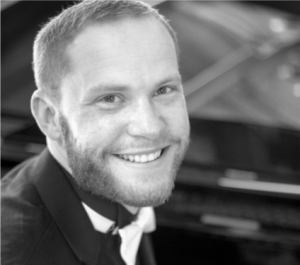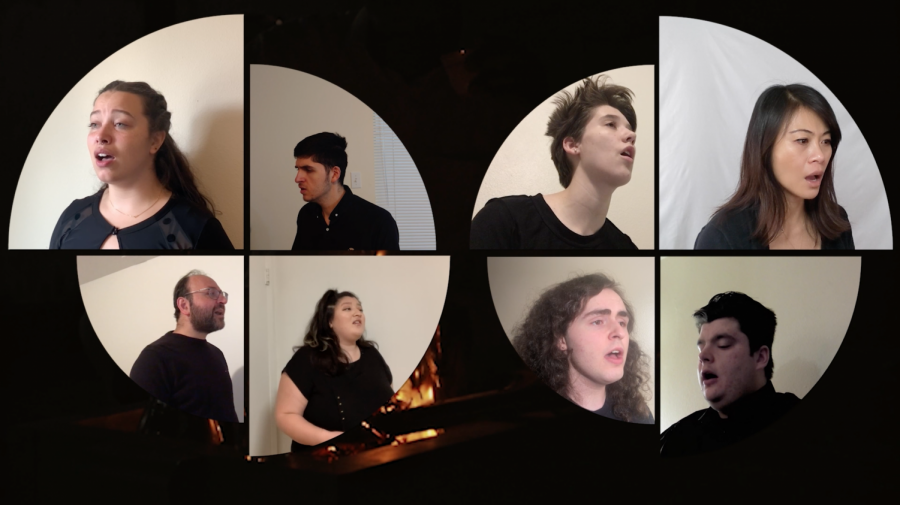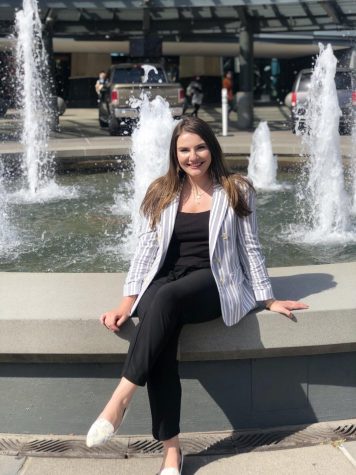Lift Every Voice
SCC Choir Director Evan Norberg talks transformation of courses
SCC choir students gather for a virtual performance. Left to right: Kehla Grow, Aryaun Atai-Azimi, Quinn Callen, Sayuri Gould, Peter Nicolas, Patricia Rivera, Adrian Chapman, Aidan Thomas
May 14, 2021
While the sudden shift to asynchronous teaching proved startling for a number of students, SCC choir director Evan Norberg’s dedication to the progression and success of his class remained unfaltering.
In a May 6 Zoom interview, Norberg discussed the effects of the COVID-19 pandemic on the current teaching environment and the choir department’s adjustment to online learning.

Q: How many original vocal ensembles were there prior to the beginning of the COVID-19 pandemic in 2020 and how many are still in session now?
Norberg: There were two normal choral ensembles and a vocal jazz ensemble. Currently, only the chamber chorale ensemble is in session.
What were the determining factors in continuing certain classes?
The chamber chorale ensemble was a more accessible option as the other two are auditioned and require a bit more experience. So this one had a few more vocalists in it and those vocalists who are still new to choir are welcome to begin it and are probably the most likely to succeed in the case that there are less options.
How have the limited number of ensembles in session impacted student enrollment?
There are a lot of people who feel they need a space to challenge themselves so they audition for those more difficult groups to get that fulfillment. As part of the program they are asked to be in the non-auditioned groups as well, as leaders to help cultivate talent in the lower groups.
What this means is, if there aren’t those upper options it isn’t as likely that individuals who need that extra challenge are going to continue in a choir where they don’t feel challenged. I have seen numbers drop from the skilled experienced singers because they’re choosing to do something else.
What kinds of choral activities were originally planned at SCC before the COVID-19 lockdown?
We regularly have a primary concert every quarter, which occurs right before finals week.
We do community outreach singing in various locations; exchanges with area high schools, area middle schools, area elementary schools… outreach meaning we go to their schools where we sing with them, perform for them and try to get them inspired. It’s kind of a recruitment tool but it’s also a way for us to help encourage them to continue music.
Lastly, we had been planning in 2020 to go to New York to sing in Carnegie Hall but that got shut down.
What arrangements were made after the pandemic?
In spring, the school did not allow me to hold any of my classes — they cancelled everything. When we came back in fall, they allowed me to have two of my ensemble classes through asynchronous work, however I do offer Zoom rehearsals once a week.
Although the school doesn’t allow me to require attendance, I push the fact that it’s really important that their success is weighed on whether or not they are participating in those sorts of things. So they have the choice of either coming to the rehearsals or watching the recorded Zoom sessions to help work on their repertoire.
I have some guide track singers that I work with professionally who help to build the musical content ahead of time and then I’m able to utilize those as teaching tools during the class. The students get all kinds of materials: the music, the guide tracks, the accompaniment track and anything else they need to rehearse and feel confident.
In spring of last year, since I didn’t have any classes, I went through the process of teaching myself how to use audio engineering and video engineering software so I can build virtual content during the school year. Students submit audio and video recordings of themselves and I put all of those things together, edit them on EditMaster and present those on YouTube as YouTube performances at the end of the quarter.
How can choir courses evolve in a pandemic while upholding the rich culture that comes from being live and in-person?
It has been difficult when it comes to the social aspects.
The school has asked us not to hold a lot of synchronous rehearsals where all the students are together at the same time. Since I only have one Zoom rehearsal a week, we have games and icebreakers where we try to create a social environment similar to in-person. Since one can’t really get the whole experience from watching the video after the fact, we hope the students are really wanting to be in the rehearsals in that space.
When it comes to the work, it’s a lot of self-motivated practice outside of rehearsals. I liken it to an LA studio musician: They’re working on the tracks, we’re doing it in rehearsals, then on their own time they are recording like a studio musician would.
We work on the cut-offs, the right pitches and making it as perfect as they can before they submit those as assignments. In some respects, it’s definitely a different direction than that of a full-on choir, but they’re still working on their musicianship and focusing on honing their voices.
Have you had any in-person performances?
There hasn’t been anything live, but small groups of up to 12 singers are beginning to get together socially-distancing with masks outdoors — so I have heard that certain groups are slowly starting to trickle into those kinds of rehearsals.
We haven’t got the OK at SCC to rehearse or perform together. If we are granted the opportunity to rehearse together, which would be wonderful, we still might not be able to perform in that sort of way. But what if we were to perform and stream the concert without an audience? We could be streaming it and then watching it from home. So that’s the next technological step for us in getting from where we are now to actually performing.
Do you have any optimistic words for choral students or anyone else who might feel discouraged from their craft during the pandemic?
The hopeful part of this is we’re beginning to see more people get vaccinated and we’ll soon be able to return to school where we’ll be able to start redeveloping. And that’s what people love about it: the chatting, the comradery, the joy of making music together.
I know that it’s discouraging to record yourself, listen back and hear all of the tiny things you don’t like. However, I think every single recording you make is still developing your voice, strengthening your sound quality, and you are discerning yourself rather than an instructor. So while the first few recordings may feel discouraging, there’s quite a jump if at the end of the quarter you go back and listen to that first recording.
Hopefully by fall of this year we’ll be able to return to similar rehearsals that we used to be able to do. Maybe not, but the hope is we’ll be able to get in there and be able to truly make music and harmony together.
Do you have any performances coming up?
We will release a performance at the end of this quarter during finals week that can be sent out to students and faculty. It’s just like a YouTube premier, so you can watch it live on release night or anytime after the fact via YouTube.







